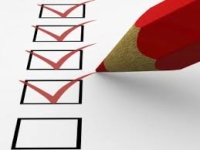Mr C Fay - Director of Music - caf@bws.wilts.sch.uk
Mrs J Hind - Music Teacher - jeh@bws.wilts.sch.uk
For a full staff list - please click here
For a full list of Music Department dates - please click here

The main aim in teaching music is to foster enthusiasm for all aspects of the subject. All pupils should enjoy and respect the subject, and work towards achieving their potential.
Teaching should build pupils’ confidence in all areas and provide a foundation based on the National Curriculum’s components of “appraising, composing, listening and performing”
Pupils should have their minds opened by a wide range of music – historically, stylistically and ethnically.
Pupils should develop their creative skills by learning to improvise and compose, and by learning to interpret the works of established composers. Pupils should perform with others and develop a sense of audience, occasion and venue. All pupils in the Lower School sing together on a regular basis.
Pupils are encouraged to join extra curricular activities and to perform in and out of school. Performance helps to build confidence and discipline. Practice develops concentration and communication.
Pupils are encouraged to take up lessons on a musical instrument, and to see this as a valuable part of an all round education.
By engaging pupils in music making, and in responding to music, we should offer them the opportunities to:-
Specifically, music should help pupils in the following area categories:-

Marking of work is in accordance with school policy. Marked work is kept in pupil files, or in exercise books. Regular departmental meetings monitor pupil progress, and mark lists are recorded leading to interim and report grades. Report writing is shared between the Director and Assistant at KS3. Work at KS4 onwards is marked in line with examination grades.
From 2014, pupils in years 7-9 will no longer be given National Curriculum levels at the end of key projects.- nor at the end of key stage. Most practical projects at KS3 are recorded (Video and/or Audio) for evaluation and pupil self-assessment purposes.
Homework is not set in the Lower School (KS3). At KS4 and post 16, there is one homework set per week. Occasionally, homework time may be set aside for rehearsing a forthcoming performance.
All pupils are offered the chance to learn how to use the Sibelius computer program, usually during Year 9. At KS4 and above, all pupils are expected to use this facility in composition work. At KS3, pupils are given the opportunity to use electronic keyboards in class, and in their own time. The department has its own library which students are expected to use for research and a large selection of recorded and score material, which is available to borrow. Occasionally, pupils will be set research projects which will utilise the Internet.
Pupils in the Sixth Form are able to access the Naxos Music Library free of charge.

Teaching methods will vary from class to class, according to the class mix. At the beginning of year 7, pupils are given a baseline test (Bentley Test). Information from the test is then used as a basis for expectation in the following year (though it is expected that the majority of pupils will pass the test with a good score). Much of the practical work in KS3 is undertaken in small groups. Care is taken to avoid grouping all strong/all weak pupils together.
Stronger pupils will be expected to take a leadership role, while weaker pupils will be set tasks in line with their ability (whilst still challenging them). In individual work, more able pupils will be set extensions and will be expected to achieve to their potential. Care will be taken to ensure that pupils who find the work especially difficult are set appropriate tasks within the project range.
Pupils identified as SEN will not necessarily have problems in music. Where they do, then realistic expectations will be set.
Pupils receiving the premium must be identified and noted in mark books at the start of the year. Although there is no reason to pre suppose problems, these pupils must be tracked to ensure appropriate progress is being made.

All pupils are made aware of the expectations of the department. Musical instruments are expensive and are to be treated with great care. In performance, silence is an important element before and after the notes have been presented. Always stressed is the importance of listening to each other, both orally and musically. Moreover, musical instruments are only to play in class when directed by the teacher. This discipline is paramount to good classroom management. The distinction and commendation system is used to reward good work up to Year 11. The system is used to encourage, and must be applied on the basis of a pupil who has done well at his own level. So, a musical pupil must not expect to be awarded distinctions unless he has met or exceeded expectations at his own level.
The two members of the department meet every 6 weeks for 40 minutes to discuss issues and to plan ahead. Occasional after school meetings (1 hour) take place. The Director of Music will make contact with each peripatetic teacher on a weekly basis. Any problems with pupil attendance/progress can then be followed up swiftly. The Director of Music and his counterpart at SWGS will meet twice a term to discuss Sixth Form issues.
Marks are collated for each year group and thresholds set for interim grades and reports. Pupil concerns are raised at departmental meetings. Peripatetic staff make a yearly report to parents and also have the opportunity to discuss their pupils with the director of Music.
The Director of Music will meet prospective pupils in advance of year 12. The first lesson in the Lower Sixth is an induction when pupils will be given syllabus details and course materials.
Each year, auditions are held in order to award four scholarships, two in year 7 and two in year 10. Once awarded, a pupil retains the scholarship for the duration of either the Lower School, or the Middle School (subject to a commitment to the school’s music). At present, the scholarships are worth £150 a year.
This discretionary award is made to a promising organist who contributes to the school’s music. (playing in chapel, and at cathedral services)
Music is not typically a risky subject, but there are hazards in Bishopgate: staircases, uneven floors, steps, blind doors to open, electrical equipment. The Director of Music undertakes a Health and Safety Audit on a regular basis, and the technician (Mr Graham Candlish) checks all electrical equipment regularly.
In addition, the department works to the following rules:-
